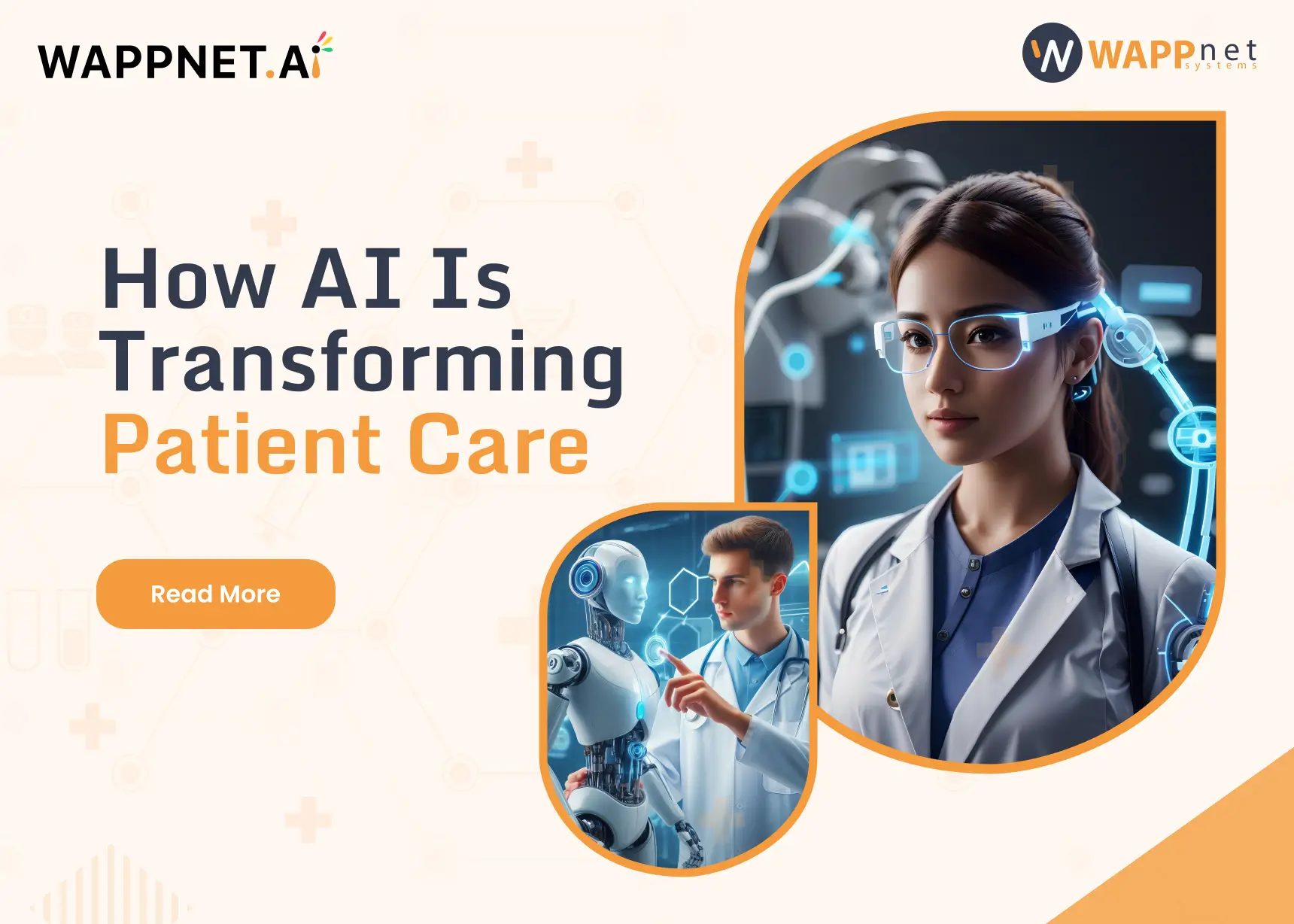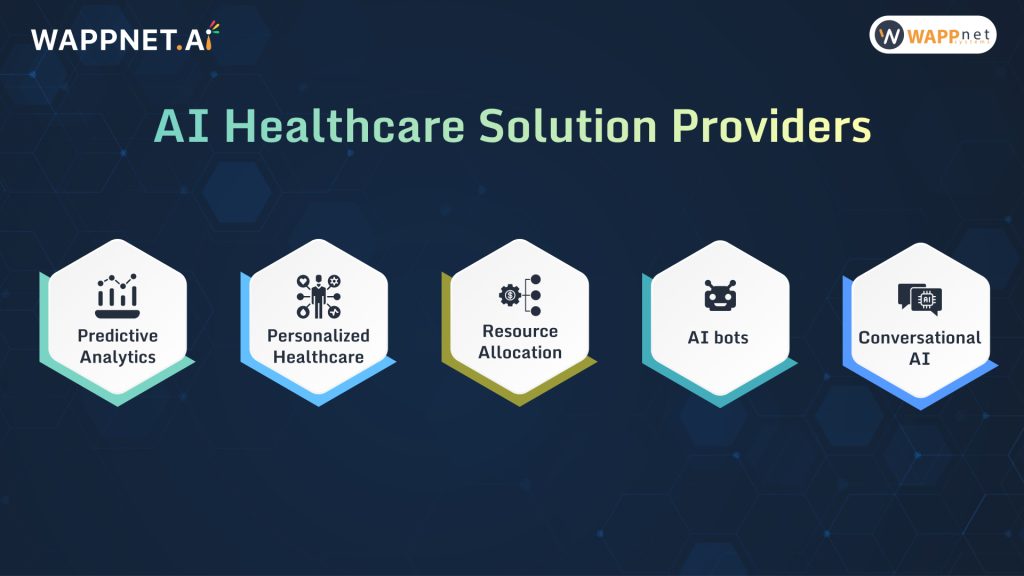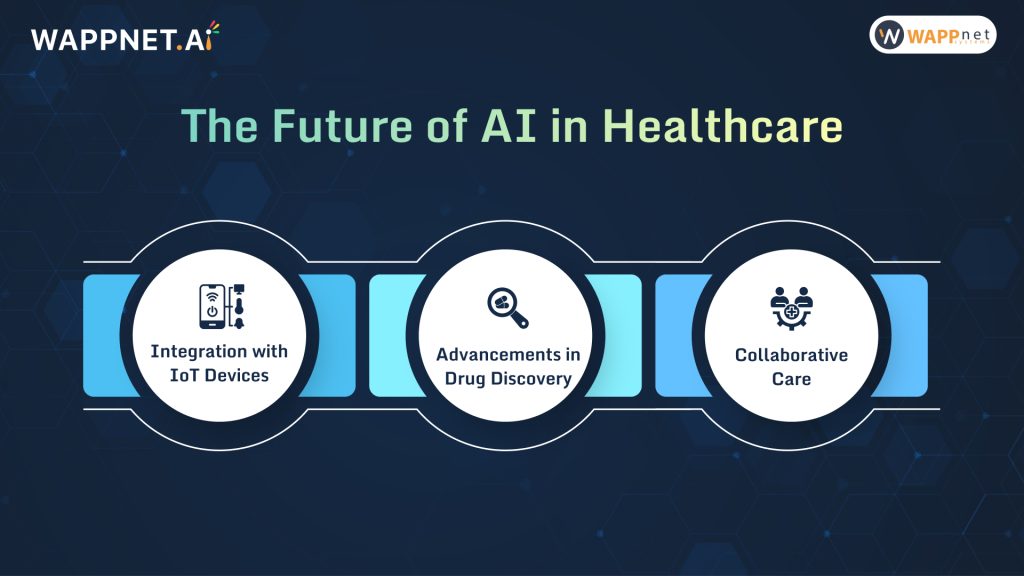Healthcare is among many areas that artificial intelligence (AI) is changing. Its capacity to process enormous volumes of data, make recommendations and even communicate directly with patients. AI agents are emerging as revolutionary tools in the delivery of healthcare. This article examines how AI agents might be integrated into clinics and hospitals. It also discusses special benefits that AI agents can provide in terms of improving patient care and operational effectiveness.
Table of Contents
What Are AI Agents in Healthcare?
A variety of AI-powered systems intended to enhance the provision of healthcare services are referred to as AI agents in the healthcare industry. They include sophisticated algorithms for illness diagnosis and chatbots for patient-provider communication. Currently, training is being done on these agents to help with clinical decision-making and personalise care.
How do AI-powered health solutions impact healthcare?
Healthcare technologies with AI capabilities aim to improve patient outcomes, accuracy, and efficiency. In order to identify patients more quickly, AI, for instance, can evaluate medical photos more quickly and frequently than human doctors. Furthermore, in order to provide insights that can improve patient care, AI agents in healthcare are essential for managing and analysing electronic health records (EHRs).
How is healthcare being revolutionized by AI agents?
AI agents in healthcare are transforming healthcare through increased patient engagement through tailored care solutions, treatment plan optimization, automated administrative activities, and improved diagnostic accuracy.
Enhancing Diagnosis and Treatment Through AI
The diagnosis and treatment in the healthcare sector is being improved by Artificial Intelligence. Traditional methods are overtaken by AI since it processes a lot of data like clinical images, test results and also patient records. This technological improvement is set to improve health standards through more accurate identification of diseases and personalised treatment plans.
AI enables medical practitioners to detect health issues early and develop more specialised treatment plans by seeing minute patterns and abnormalities that would escape human inspection. This skill now not only improves patient outcomes but also maximises the use of resources within healthcare systems. AI has the potential to significantly change healthcare procedures and enhance patient care as long as it continues to adapt.
Enhancing Patient Engagement
The emergence of virtual health assistants and chatbots is expected to bring about a significant transformation in patient involvement, given the current trajectory of healthcare digitization. They are interactive conversationalists who go above and beyond simple conversational assistance by engaging patients in conversation, responding to inquiries, reminding patients when to take their prescriptions, and offering useful health information.
These technologies guarantee that patients and their healthcare practitioners stay connected even when the patient leaves the clinic. With ongoing support from individualised and easily available care, people are able to take charge of their health and well-being, no matter where they are.
Streamlining Operations
Healthcare operations are being revolutionized by AI healthcare solutions, which are automating vital administrative activities including scheduling, processing claims, and patient flow management. Healthcare facilities can minimize patient unhappiness and drastically cut wait times by utilizing AI.
This technological innovation frees up staff members to concentrate on providing patients with better care and handling more difficult problems in the healthcare setting. In the end, AI agents for healthcare improve operational effectiveness, guaranteeing that healthcare professionals can better deploy their resources while improving the overall patient experience and outcomes.
AI Healthcare Solution Providers
Healthcare practitioners can profit greatly from AI breakthroughs in the following ways:
Predictive Analytics
Predictive analytics, fueled by big data and AI, empowers healthcare providers with the ability to foresee potential health issues, reduce hospital readmissions, and manage chronic conditions more effectively through the analysis of future trends and patterns.
This advancement holds promise for improving patient care outcomes and optimising resource allocation within the healthcare system.. This capability allows us to intervene early, prevent problems, and provide precise care, promising improved patient outcomes and better resource allocation in healthcare.
Personalized Healthcare
Artificial intelligence is changing individualised medicine through the use of genetic data analysis to predict how patients will react to particular medications. By doing so, treatment plans can be customised by medical practitioners to address the needs of each individual patient.
This approach confers accuracy in treatment decisions by choosing therapies that are likely to improve patient outcomes, thus making sure that individuals get the best care and results.
Resource Allocation
Artificial intelligence’s predictive powers, which predict hospital admissions and identify patients who may have difficulties, are revolutionising the way resources are allocated in the healthcare industry.
By taking a proactive stance, healthcare practitioners can maximise the allocation of personnel, beds, and equipment, leading to increased operational effectiveness and carefully planned resource use that enhances patient outcomes.
Ethical Considerations and Challenges
While there are many benefits of incorporating AI into healthcare, there are also challenges and ethical concerns that must be properly studied and addressed.
Data Privacy
AI heavily relies on huge amounts of data, such as private medical records stressing the importance of strong privacy protections. In order to mitigate risks of privacy breaches and ensure patient data secrecy, healthcare institutions should implement rigorous security measures.
Bias and Fairness
If AI systems are trained on data that does not sufficiently represent a diverse patient group, bias in the healthcare industry may unintentionally remain. It is essential to use a variety of datasets and to continuously check for discriminating trends in order to assure fairness. This method encourages fair healthcare procedures while avoiding prejudice and aiming for inclusivity in medical judgement.
Read More: How AI Is Transforming Patient Care
Handling Regulatory Standards
Compliance with US healthcare rules like HIPAA is essential for the success of AI healthcare solutions. Compliance requires careful planning and ongoing management of AI systems.
AI Agents in Action: Practical Applications
Artificial intelligence (AI) agents are becoming more and more popular in the healthcare industry, showing tremendous advantages for both businesses and patients.
Case Study 1: Virtual Nursing Assistants
AI-powered virtual nursing assistants are monitoring patients and intervening in real-time. They can alert docs if a patient’s vitals go out of range.
Case Study 2: AI in Radiology
AI is being used in radiology to help with image interpretation of X-rays, CT scans, and MRIs. AI can spot abnormalities with precision and help radiologists make the right call.
Case Study 3: AI for Mental Health
There is an emergence of AI applications in the process of providing mental health care. Such applications can offer the patient a CBT on mental health issues, daily check on the patient’s behavior and mood, and give intervention when necessary.
The Future of AI in Healthcare
AI in healthcare has a promising future as innovations are being made more frequently.
Integration with IoT Devices
The implementation of AI with IoT devices including wearable Health monitors will facilitate real-time monitoring of patients’ health status and prompt treatment.
Advancements in Drug Discovery
To be specific, there are a few aspects and capabilities of AI that may help in changing the ways of drug discovery and development through the speeding up of the process of identification of potential candidates and optimization of clinical trials.
Collaborative Care
Through the use of AI, agent communication will enable coordination and subsequently lead to the linked patient, caregiver, and specialists receiving pertinent information necessary for care.
Conclusion
The healthcare sector has seen a significant transformation, thanks to the deployment of artificial intelligence (AI). In the process, it has transformed organizational efficiencies, improved patient involvement, and changed diagnostic capacities. AI technology has enormous potential to substantially enhance healthcare delivery even as it advances.
However, incorporating AI into healthcare would require careful consideration of moral conundrums, security and privacy issues, and legal compliance. This guarantees that AI uses in healthcare are moral, safe, and beneficial.
The ability of AI to guarantee improved services based on individualized treatment is where it’s true power lies. Not quite like a reality, but not quite like fiction for the medical services of tomorrow.
There are countless opportunities for AI to be employed in the healthcare industry since it can improve patient care through innovation and cooperation between AI agents and healthcare professionals. As it develops, patient-centered, cost-effective, and responsive healthcare solutions will follow.
In conclusion, the development of artificial intelligence (AI) in the healthcare industry is a process rather than a finished product. By employing AI ethically, health care providers can use it to transform the way that care is delivered and to encourage better results.
Related Post



